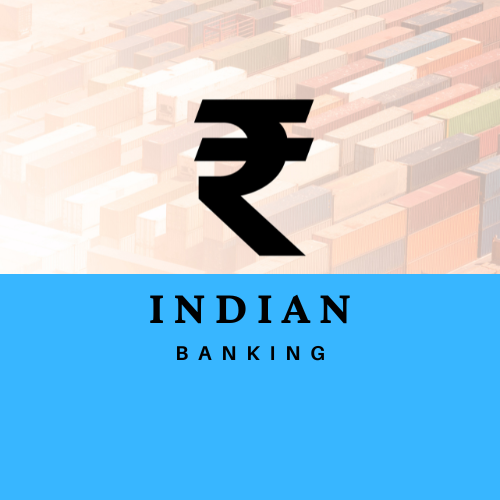Home Purchasing Loans
Minimum Loan Amount
Minimum Tenure
Minimum Age
Maximum Loan Amount
Maximum Tenure
Maximum Age
Calculate Home Construction Loan EMI
Benefits Of Home Purchasing Loans
Financial Assistance
Home purchasing loans provide individuals with the necessary funds to buy a house without having to pay the entire purchase amount upfront. This makes homeownership more accessible to a wider range of people, including first-time homebuyers.
Freedom and Flexibility
Homeownership gives individuals the freedom and flexibility to customize their living spaces according to their preferences. Unlike rental properties, homeowners have the liberty to make modifications, renovations, and improvements to their homes without seeking permission from landlords.
Asset Creation
Buying a home is considered one of the most significant investments an individual can make. Home purchasing loans help individuals build wealth by allowing them to acquire an appreciating asset that can potentially increase in value over time.
Potential Rental Income
Homeownership offers the opportunity to generate rental income by renting out spare rooms or additional properties. This additional income can help offset mortgage payments, supplement household finances, or serve as a source of passive income for homeowners.
Hedge Against Inflation
Real estate is often considered a hedge against inflation since property values tend to appreciate over time. By investing in homeownership through a home purchasing loan, individuals can potentially safeguard their wealth against the erosive effects of inflation.
Tax Benefits
Homebuyers in India can avail of various tax benefits on home purchasing loans. These include deductions on the principal repayment under Section 80C of the Income Tax Act and deductions on the interest paid under Section 24(b) of the Income Tax Act, subject to certain conditions.
Equity Buildup
With each mortgage payment, homeowners build equity in their properties. Equity represents the portion of the property’s value that the homeowner owns outright. Over time, as the mortgage balance decreases and the property value appreciates, homeowners’ equity increases, providing them with a valuable asset.
Generational Wealth Transfer
Homeownership enables individuals to build generational wealth by passing down their properties to future generations. Real estate assets can serve as a valuable inheritance, providing financial security and stability to heirs and beneficiaries.
Stability and Security
Homeownership provides stability and security to individuals and families. It offers a sense of permanence, allowing homeowners to establish roots in a community and create a stable living environment for themselves and their families.
Sense of Pride and Achievement
Owning a home is a significant milestone for many individuals and families. It instills a sense of pride and achievement, symbolizing hard work, financial responsibility, and the fulfillment of long-term goals.
Myths and facts of Home Purchasing Loan
Myth: You need to have a high income to qualify for a home purchasing loan.
Fact: While a higher income can increase your eligibility and borrowing capacity, there are home loan products available in India catering to various income levels. Lenders consider multiple factors beyond income, such as creditworthiness, existing debts, employment stability, and the property’s value.
Myth: You need to have a perfect credit score to get a home loan.
Fact: While a good credit score can improve your chances of loan approval and may qualify you for better interest rates, having a perfect credit score is not always necessary. Many lenders offer home loans to individuals with varying credit scores, although terms and interest rates may differ accordingly.
Myth: You must provide a substantial down payment to get a home loan.
Fact: While a down payment is typically required for a home loan, the amount may vary depending on factors such as the loan amount, the property’s value, and the lender’s policies. In India, down payments can range from 10% to 20% or more of the property’s value, with some government schemes offering lower down payment options for eligible borrowers.
Myth: Home loans are only available for new properties.
Fact: Home loans in India are available for both new and resale properties, including apartments, houses, plots of land, and under-construction properties. Borrowers can choose from a variety of loan products tailored to their specific needs, whether purchasing a newly constructed home or a pre-owned property.
Myth: Fixed-rate home loans are always better than floating-rate home loans.
Fact: The choice between fixed-rate and floating-rate home loans depends on various factors, including your risk tolerance, financial goals, and market conditions. While fixed-rate loans offer stability by locking in a consistent interest rate for the loan term, floating-rate loans may provide flexibility and potentially lower rates if interest rates decrease.
Myth: Home loan processing takes a long time, delaying property purchase.
Fact: While home loan processing times can vary depending on factors such as documentation, property valuation, and lender efficiency, many lenders in India offer streamlined processes and quick approvals. With proper documentation and timely submission, borrowers can often expedite the loan approval and disbursement process.
Myth: Home loans involve hidden charges and fees.
Fact: While some fees and charges may apply to home loans, such as processing fees, prepayment penalties, and administrative charges, these are typically disclosed upfront in the loan agreement. Borrowers should carefully review the terms and conditions of the loan and seek clarification from the lender regarding any fees or charges.
Myth: Once you've taken a home loan, you're stuck with it for the entire tenure.
Fact: Home loan borrowers have the option to refinance their loans or transfer their balance to another lender if they find more favorable terms or lower interest rates elsewhere. However, borrowers should consider the costs and benefits of refinancing carefully and ensure that it aligns with their long-term financial goals.
-
Do assess your financial readiness: Evaluate your financial situation, including your income, savings, and existing debts, to determine your borrowing capacity and affordability. Consider factors such as down payment requirements, loan eligibility criteria, and monthly EMIs (Equated Monthly Installments).
-
Do check your credit score: Obtain a copy of your credit report and check your credit score before applying for a home loan. A good credit score increases your chances of loan approval and may qualify you for better interest rates. Take steps to improve your credit score if necessary, such as clearing outstanding debts and maintaining timely payments.
-
Do research and compare lenders: Explore home loan offerings from various banks, housing finance companies, and NBFCs (Non-Banking Financial Companies) to find the most competitive interest rates, fees, and terms. Consider factors such as customer service, reputation, and responsiveness when choosing a lender.
-
Do calculate your budget: Determine your budget for purchasing a home, taking into account factors such as your income, expenses, down payment amount, and loan amount eligibility. Use online EMI calculators and affordability tools to estimate your monthly EMIs and ensure they align with your budgetary constraints.
-
Do get pre-approved: Consider getting pre-approved for a home loan before house hunting. Pre-approval demonstrates your seriousness as a buyer and gives you a clear idea of your budget, making it easier to negotiate with sellers and expedite the home buying process.
-
Do understand loan terms and conditions: Thoroughly review the terms and conditions of the home loan agreement, including interest rates, repayment tenure, prepayment penalties, processing fees, and foreclosure charges. Seek clarification from the lender on any aspects you don’t understand before signing the agreement.
-
Do consider additional costs: Factor in additional costs associated with home buying, such as registration fees, stamp duty, property taxes, legal fees, maintenance expenses, and insurance premiums. Ensure you have sufficient funds to cover these expenses in addition to your down payment and EMIs.
-
Do prioritize savings and emergency funds: Maintain adequate savings and emergency funds to cover unexpected expenses or financial setbacks during the home buying process and after homeownership. Having a financial buffer can provide peace of mind and help you navigate unforeseen challenges without compromising your loan repayments.
-
Don’t overextend your budget: Avoid stretching your finances to purchase a home beyond your means. Be realistic about what you can afford based on your income, expenses, and financial goals. Stick to your budget and resist the temptation to buy a property that exceeds your financial capacity.
-
Don’t overlook down payment requirements: While home loans offer financing for a significant portion of the property’s value, you’ll typically need to contribute a down payment from your own funds. Avoid neglecting down payment requirements and ensure you have sufficient savings set aside for this purpose.
-
Don’t ignore your credit history: Your credit history plays a crucial role in determining your loan eligibility and interest rates. Avoid behaviors that could negatively impact your credit score, such as missing loan payments, maxing out credit cards, or applying for multiple loans simultaneously.
-
Don’t skip property due diligence: Before finalizing a property purchase, conduct thorough due diligence to assess factors such as location, legal title, construction quality, amenities, and resale potential. Avoid rushing into a purchase without verifying essential details and consulting with legal and real estate experts if needed.
-
Don’t apply for multiple loans simultaneously: Avoid applying for multiple home loans or other credit products simultaneously, as this can raise red flags with lenders and negatively impact your credit score. Focus on one loan application at a time and wait for a decision before considering other options.
-
Don’t forget about loan prepayment options: Familiarize yourself with the prepayment options available on your home loan, such as partial prepayment and full prepayment (foreclosure). Understand any associated charges or penalties and consider the potential benefits of prepaying your loan to reduce interest costs and shorten the repayment tenure.
-
Don’t ignore loan documentation requirements: Ensure you provide complete and accurate documentation as required by the lender when applying for a home loan. Missing or incomplete documentation can delay the loan approval process and lead to frustration and inconvenience.
-
Don’t neglect to read the fine print: Carefully read all documents related to your home loan, including the loan agreement, terms and conditions, and disclosures. Pay attention to any clauses, obligations, or restrictions mentioned in the fine print and seek clarification from the lender if needed before proceeding.
Home Purchasing Loan FAQ’s
What is a home purchasing loan?
A home purchasing loan, commonly known as a home loan or a mortgage, is a type of loan provided by banks, housing finance companies, or other financial institutions to individuals for the purpose of purchasing residential properties such as houses, apartments, or plots of land.
Who is eligible to apply for a home purchasing loan?
Eligibility criteria for home purchasing loans may vary depending on the lender and the specific loan product. However, common eligibility factors include age (usually between 21 to 65 years), income stability, creditworthiness, employment status, and citizenship or residency status.
What documents are required to apply for a home purchasing loan?
The documentation requirements for a home purchasing loan may vary depending on the lender, but commonly required documents include proof of identity, address, income (such as salary slips or income tax returns), employment details, property documents (such as title deed or sale agreement), and bank statements.
How much loan amount can I get for purchasing a home?
The loan amount you can get for purchasing a home depends on various factors such as your income, creditworthiness, repayment capacity, the value of the property being purchased, and the lender’s policies. Typically, lenders offer home loans covering a certain percentage (e.g., 70-90%) of the property’s value, with the remaining amount to be funded by the borrower as a down payment.
What is the interest rate and tenure for home purchasing loans?
Interest rates on home purchasing loans may be fixed or floating and vary depending on factors such as the lender, loan amount, tenure, and the borrower’s credit profile. Repayment tenures for home loans can range from a few years to several decades, with common options including 10, 15, 20, or 30 years.
How is the loan repayment done?
Loan repayment for home purchasing loans is typically done through Equated Monthly Installments (EMIs), which consist of both principal and interest components. Borrowers repay the loan amount over the chosen tenure through regular monthly installments, which are calculated based on the loan amount, interest rate, and repayment tenure.
Are there any tax benefits associated with home purchasing loans?
Yes, borrowers of home purchasing loans in India are eligible for various tax benefits under the Income Tax Act. These include deductions on the principal repayment (under Section 80C) and deductions on the interest paid (under Section 24) subject to certain conditions. Additionally, first-time homebuyers may be eligible for additional tax benefits under Section 80EE.
Can I prepay or foreclose my home loan?
Yes, many lenders allow borrowers to prepay or foreclose their home loans before the end of the loan tenure. Prepayment allows borrowers to reduce their interest burden and repay the loan faster. However, some lenders may impose prepayment charges or penalties, so it’s essential to check the terms and conditions of the loan agreement before making prepayments.
What happens if I default on my home loan?
Defaulting on a home loan can have serious consequences, including late payment penalties, damage to credit score, legal action by the lender (such as foreclosure), and potential loss of the mortgaged property. It’s crucial to communicate with the lender proactively if you’re facing difficulties in repaying the loan to explore alternative solutions and avoid default.
Can I transfer my home loan to another lender for better terms?
News & Blog
Recent posts
The term “latest posts” implies that these are the most recently created or published pieces of content. It could include news articles, blog posts, product updates, or any other type of information that the website regularly shares with its audience. The goal is to keep visitors informed about the latest developments or topics of interest on the site.
5 Common Mistakes to Avoid While Applying for a Loan
When applying for a loan, avoiding certain mistakes can improve your chances of approval and help you secure better terms. Here are five common mistakes to avoid: 1. Not Checking Your Credit Score First Many borrowers skip the step of reviewing their credit score...
What Are MSME Loans and How Can They Help Your Business?
MSME Loans are financial products designed specifically to support Micro, Small, and Medium Enterprises (MSMEs). These loans aim to provide the necessary capital for businesses to grow, maintain operations, and meet financial requirements. Here's a breakdown of what...
Exploring Secured vs Unsecured Loans: Which One Should You Choose?
When deciding between a secured or unsecured loan, understanding the differences, advantages, and risks of each can help you make a well-informed choice. Here's a breakdown of secured and unsecured loans: 1. Secured Loans A secured loan is backed by collateral, which...
Top Benefits of Choosing a Digital Lending Platform
Digital platforms are poised to be the future of lending in India for several key reasons. The country's unique blend of technological growth, financial inclusion efforts, and a young, digitally-savvy population sets the stage for these platforms to reshape the...
Personal Loans
Personal loan eligibility criteria in India vary from one lender to another, but there are common factors that financial institutions generally consider when evaluating an applicant's eligibility. These factors help determine whether the borrower is capable of...
Business Loans
A business loan can lead to business growth or business loss, depending on how it's managed. Here’s a breakdown of how each scenario could unfold: Business Growth A business loan can fuel growth when: Invested wisely: Funds are used to expand operations, buy...
how GST impacts lenders’ operations or how changes in GST policies affect them in india?
Goods and Services Tax (GST) has a significant impact on various industries in India, including the lending sector. Lenders, including banks and non-banking financial companies (NBFCs), are affected by GST in several ways. Here’s how GST influences their operations...
How to Increase Your CIBIL Score
Improving your Credit Information Bureau (India) Limited (CIBIL) score is essential for obtaining better loan terms and financial opportunities. Here are some steps you can take to increase your CIBIL score in India: Pay Your Bills on Time: Timely repayment of loans...
Indian Banks
Indian banks play a crucial role in the country's financial system, offering a wide range of banking services to individuals, businesses, and government entities. Here are some key points about Indian banks: Types of Banks: Indian banks can be broadly classified into...
What types of bank loans available in india
In India, a wide range of bank loans are available to meet the diverse financial needs of individuals and businesses. Here’s an overview of the most common types of loans: 1. Personal Loan Purpose: For personal use such as medical emergencies, weddings, travel, or any...














